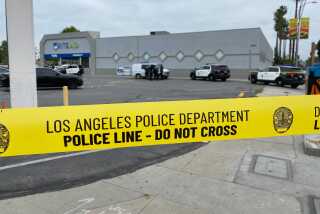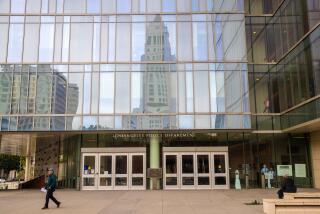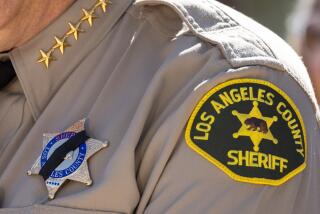Readers React: The wide gap between police who fear for their lives and members of the public who fear police
In the turbulent wake of Stephon Clark’s killing in Sacramento on March 18, only a small handful of readers have sent us relatively placid commentaries, compared with the dozens that have written with more emotion. That’s to be expected in a case involving an unarmed 22-year-old black man who was suspected of breaking multiple car windows being shot eight times by police in his grandparents’ backyard.
Notable among the letters were submissions from readers on both sides of the blue line — police officers who sympathize with their brethren whom they say must make life-or-death, split-second decisions that should generally not be second-guessed by the public they protect, and civilians who allege persistent mistreatment by law enforcement because of their race — whose experiences inform and, in some cases, harden their commentary.
Many people would agree that reasoned, dispassionate policymaking is the best way to draw up the rules that govern the interactions with law enforcement. But public debate is another thing, and the letters on Clark’s death and other issues of police conduct show that when personal experience becomes involved, unemotional discourse may prove difficult to achieve.
Greg Meyer, a retired Los Angeles Police Department captain, responds to a Los Angeles Times editorial:
The Times editorial board makes a reasonable argument in calling for California lawmakers “to craft language that effectively raises the standard of performance without needlessly endangering the lives of officers or putting them in such fear of being criminally charged that they are unable to carry out their duties.”
Since January 2015, there have been about 170 American peace officers killed in the line of duty by gunfire. This happens when the officers do not recognize and react to the deadly threat soon enough. We would all be better off if people did not run, resist or attack officers who are doing their jobs, or hold shiny objects in their hands that they suddenly pull out when resisting arrest.
Policy, training and officer accountability have already improved to the point where in the past 25 years, LAPD officer-involved shootings have decreased by 77%. Emotion-driven legislation that is intended to further handcuff the police will not improve the situation.
Los Angeles resident Charles Martin writes of his experiences with police as a black man:
It truly upsets me when people only see things from their point of view, so here’s another point of view. You should try being black for a while and then tell me how it feels; here’s what you will encounter:
You’ll be stopped just for walking down the street. You’ll be stopped for jogging. You’ll be the only one asked for ID when using a credit card. You’ll be asked to get on the ground for no reason. You’ll will be insulted for no other reason then being black. You’ll be arrested in a case of mistaken identity because you are black — I was in 1958, and I spent three days in jail.
Winnetka resident Mike Post, a former chief of police, mentions officers “in the heat of the moment”:
Hindsight is a great thing, but what gets left out of the discussion is how often a police department might be sued if it had done nothing to intervene and, say, some knife-wielder went on to stab someone.
This is not a conservative-versus-liberal debate, just one of common sense about well-intentioned cops who are presented with only bad options to pick in the heat of the moment. What’s alarming is the number of people who feel they have more insight than the men and women on the street who risk their lives daily.
Follow the Opinion section on Twitter @latimesopinion and Facebook
More to Read
A cure for the common opinion
Get thought-provoking perspectives with our weekly newsletter.
You may occasionally receive promotional content from the Los Angeles Times.











